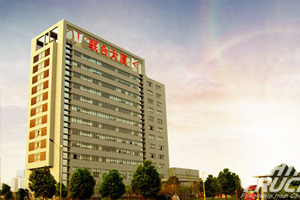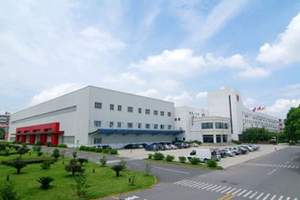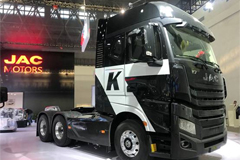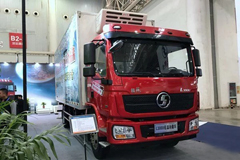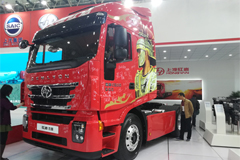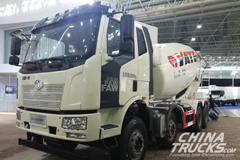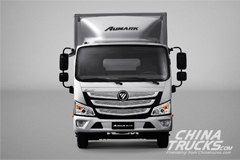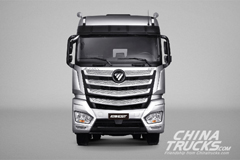Decline and fall of the GM empire
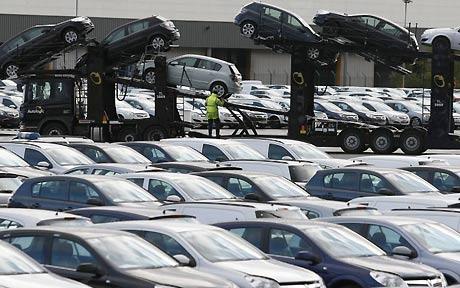
The decisive moment in securing the future of Vauxhall took place in the shadow of the Brandenburg Gate in Berlin, 64 years after Churchill tanks made by the company had helped to storm the German capital.
The latest chapter in the history of the UK car maker, owned by General Motors, marks a more sombre moment than 1945. Vauxhall, like politics and economics, has come a long way since the Second World War.
At the table at a hotel near the landmark on Friday were US, German, Canadian and Russian representatives. Magna International, the Canadian car parts group, was ironing out the details of its bid, backed by Russian cash, for Vauxhall and Germany's Opel. Listening were bosses from GM, Karl-Peter Forster, head of GM Europe, Hans Demant, boss of GM's German arm Opel, and their advisors Commerzbank.
They were meeting after a tumultuous week of negotiations, described as "scandalous", "an outrage", "absurd", and a "Brazilian soap opera" by their multinational participants.
The talks involved some of the biggest names in Western politics: Hilary Clinton, Angela Merkel, and Lord Mandelson.
Relations were tense on both sides of the Atlantic, as the magnitude and scale of a Chapter 11 filing by GM became clear.
In the US, GM has been attempting to secure support from bondholders and unions ahead of its expected slide into one of the largest ever corporate bankruptcies this weekend. In Europe, governments have been trying to save GM's European businesses before the parent company's demise, securing as many of the 55,000 jobs as possible, including 5,000 Vauxhall staff at Ellesmere Port and Luton.
Negotiations reached a turning point in a dramatic meeting in Berlin that lasted from 9pm on Wednesday night until 4am.
Just an hour before the meeting, the German government, which was looking to approve a vital €1.5bn (£1.3bn) bridging loan to protect Opel was left shocked when GM declared there was a $415m (£256m) hole in Opel's finances that left the employer of 25,000 in urgent need of short-term support.
The Obama administration had blocked GM from using its US taxpayer-backed funds to finance a separate foreign entity and the talks at the German Chancellery, led by the economy minister Karl-Theodor zu Guttenberg, swiftly descended into chaos.
With Merkel and finance minister Peer Steinbrueck at the table, the US Treasury is believed to have been represented by a junior minister who had to consult with more senior colleagues via video link in a separate room. The deadlock could not be broken.
As a result, a furious Merkel and colleagues said they could not agree to provide a loan, and their plan to protect Opel from GM's bankruptcy through a temporary trustee was in tatters.
With the US and German governments at loggerheads, and zu Guttenberg publicly criticising America's conduct, it was suggested that the remaining bidders, now just Fiat and Magna after the elimination of RHJ International, foot the short-term bill.
Sergio Marchionne, the chief executive of Fiat, had left Berlin earlier in the week to fly to Montreal. This was to clinch a deal for Chrysler, the other half of his plan to make the Italian car maker the second biggest automotive manufacturer in the world.
However, when he heard of the latest GM developments his growing frustrations boiled over and he withdrew Fiat from talks. His ambitions had become over-complicated by GM's complex web. "This process is taking on the air of a Brazilian soap opera," he said.
At the same time Frank-Walter Steinmeier, Germany's foreign minister, called Clinton in the US as his government reeled from the lack of co-operation across the Atlantic. In a 30-minute phone conversation he gained assurances that the secretary of state would press Tim Geithner, the treasury secretary, on the issue.
With a transatlantic diplomatic incident brewing, Frank Stronach, the colourful owner of Magna who once referred to himself as "king" during a shareholder meeting, seized his chance. The Canadian car parts group, whose bid is backed by Russian state-owned bank Sberbank and includes oligarch Oleg Deripaska as a partner, offered to plug the funding gap.
With Fiat now sidelined, GM and Magna bosses rushed to the hotel on Friday afternoon. They wanted to iron out a tentative agreement before the next meetings with Merkel.
Official confirmation of a deal came from the UK where Lord Mandelson, keen to prove that he was on top of the situation following fierce criticism from Tony Woodley at Unite that he was not doing enough to protect UK jobs, told the world that an agreement with Magna was "almost certain".
At around 1.45am UK time, roughly eight hours later, confirmation from Berlin arrived that a deal had been agreed and that the €1.5bn loan, vital to Opel and Vauxhall avoiding their own insolvency, would be unlocked.
The deal marks the first major step in the traumatic unwinding of GM across the world, caused by its huge debts and dramatic falls in sales. For Vauxhall it marks the end of an American dream and one of the UK's most successful foreign ownerships.
Of course, times have changed politically over the course of Vauxhall's 106-year history. In the Second World War, it was Vauxhall that bailed out the Germans – rather than the other way around – after turning over its Luton car production plant to produce the Churchill tank for Allied forces.
From its beginnings, Vauxhall was an emblem of British pride. Based in Luton, Bedfordshire, its first car, a two-seater with five horsepower, but no reverse gear, rolled off the production line in 1903.
In 1908, draughtsman Laurence Pomery designed an engine for the RAC Rally that was such a success he took over from the company's chief engineer.But after World War One he left for a new challenge in America and the business struggled to make any money. It needed a saviour.
In 1925, when General Motors bought Vauxhall for $2.5m – $141m (£87m) in today's money – it was part of the American car giant's push to expand across the globe. Four years later it bought Opel in Germany, having already established bases in France, Brazil, Mexico and Argentina.
The plan was for world domination of the car industry, and it worked – for a time. Before buying Vauxhall, GM had imported trucks into the UK through Canada, under the Imperial Preference rules. But within six years of the acquisition, Vauxhall was able to launch its own commercial vehicle fleet, the Bedford, a name that would become synonymous with vans and trucks until its sale by GM in 1987 to AWD, a company that went bankrupt five years later.
For the most part, GM's ownership of Vauxhall proved to be successful for both companies, with Vauxhall's one millionth vehicle rolling off the production line in 1953.
Money was invested in new machinery at Luton, Bedford production was moved to nearby Dunstable, and in 1959 a new plant at Ellesmere Port in Liverpool was announced. Some of the models – the Cavalier, the Astra, the Carlton – became household names.
In 1986, however, GM announced the creation of GM Europe to bring together all of its European businesses. The new company was dominated by Opel, which meant that the majority of research and development would be completed in Opel's Russelsheim headquarters, with Vauxhall's new models merely re-badged, right-hand drive versions of their continental cousins.
By the start of this decade, although Vauxhall was still vying with MG Rover for the second UK sales spot behind Ford, a period of under-investment across GM's global brands began to eat away at its position because of onerous cost problems stemming from its US operations.
In 2001, GM announced plans to end car production at Vauxhall's Luton plant altogether, a move that led to a 10,000-strong march in the town. Since then its 1,500 workforce has only produced vans in a joint venture with Nissan and Renault.
However, Ellesmere Port, which lost 900 jobs following the removal of its night shift in 2006, has enjoyed something of a renaissance after improving productivity and gaining the contract to manufacture the new Astra. The contract, in place until 2014-15, could save the 2,000 workers on Merseyside.
Despite the woes of GM in the US, Vauxhall's presence in the UK remains strong. It is secure as the second leading brand in the UK after Ford, accounting for 14pc of all sales, and through the Corsa, Astra, Insignia and Zafira it also contributes four of the top-selling models. That performance makes the UK the largest market in Europe for GM, ahead of Russia and Germany.
For many, the Magna deal represents another shift in global economic power, and the car industry, from West to East. The Canadian group plans to use Sberbank and Deripaska's manufacturing capacities to expand the Opel and Vauxhall brands into the quickly expanding Russian market.
The consortium gained pole position in the race to acquire the assets, which includes plants in Spain, Belgium and Poland as well as Opel and Vauxhall, after submitting detailed plans for their future. Ownership would be split 35pc to Sberbank, 20pc to Magna, 10pc to GM workers, and 35pc remaining with GM.
The key issue now is protecting jobs, with Magna proposing to cut roughly 9,000 across Europe, including up to 2,500 in Germany.
Lord Mandelson said he already has assurances from Magna about keeping production in the UK, but he urgently wants "reinforcements" on these claims and he accepts "major change" is necessary. The jobs at Ellesmere Port and Luton could be helped if the Government provides some of the €5bn (£4.3bn) of loan guarantees which Magna needs to support the deal.
Professor Garel Rhys, president of the Centre for Automotive Industry Research at Cardiff University Business School, said it would be "lunacy" to shut down Ellesmere Port because it so efficient. But he admitted the Luton plant is "a bit more problematic" because of a slump in commercial vehicle sales.
Fears remain, despite assurances from the European Commission, that Berlin may be able to push for job cuts outside of Germany as Chancellor Merkel attempts to win support from the public during election year.
However, Professor Rhys believes that Magna will not have to cut capacity as Fiat was likely to, because with no major existing assembly base in Europe, the Canadian group will want to produce as many vehicles as possible to secure a footing in the streamlined car industry.
The automotive industry is set to look very different following the restructuring of Chrysler and GM. Japanese car maker Toyota has already overtaken GM as the largest car maker following the crisis, but even it has posted its first loss in 70 years amid the downturn.
Despite the problems now, Professor Rhys believes that it will be the recovery that marks the "most difficult and dangerous time" for car makers. "That's when some will ramp up production and run out of working capital," he said. The new Opel, Vauxhall and Magna group could be particularly at risk, he added, with the car parts group at risk of losing customers if the car makers fear that their secrets will now be available to the owner of a rival. "As a standalone entity it may not prove big enough," he said.
Howard Wheeldon, senior strategist at BGC Partners, said that in five years time European car making capacity is likely to be only 70pc-75pc of what it is now. With businesses collapsing due to falls in sales, this will make the rise of the East and emerging markets all the more likely. Car sales in China have overtaken the US for the first time this year, while Beijing Automotive Industry Corporation even made a late bid for GM Europe.
"China will eventually expand production overseas and I would certainly not rule out one day the Chinese attempting to acquire a significant interest in a US car maker such as GM," said Mr Wheeldon.
The threat of insolvency has been avoided for Vauxhall, but the company and its workforce still face a prolonged period of uncertainty. The corporate empire of GM faces a ruthless break up and the end of some famous brands.
A move from Detroit to Chongqing is beginning.
Views:0
- FULONGMA Exports 40 Compressed Garbage Trucks to Eurasian Continent 2022-03-11
- 3 FULONGMA Garbage Trucks And 200 Bins Were Donated to Honiara City Council 2021-09-09
- FULONGMA Ranked in Top 50 Environmental Enterprises in China 2021-08-31
- FULONGMA Airtight Pressure-fill High-efficiency Kitchen Waste Truck Is Coming 2021-07-02
- FULONGMA Dust Suppression Truck and Road Sweeper Set Off to Peru 2020-08-20
- FULONGMA Donates Anti-epidemic Materials to Shanghai International Resort 2020-06-05
- FULONGMA Multi-functional Dust Suppression Equipment Delivered to Mexico Client 2020-04-28
- FULONGMA, Scania Launch 3rd-generation Compression Garbage Truck in Hong Kong 2020-04-10
- Dongfeng Secured an Order of 400 Units Sanitation Truck Chassis from FUL ONGMA 2019-04-26
- GM's New Wuling Rong Guang Mini-pickup Truck Coming to China 2018-07-25
Submit Your Requirements, We Are Always At Your Service.
- BYD Stopped the Production of Fuel Vehicles
- Geely Began Test Runs of Green E-methanol Vehicles in Danmark
- 2022 SANY Global Dealer Summit Was Held Successfully Online
- BYD and Shell Partner on EV Charging across China and Europe
- Daimler Truck Significantly Increase Sales, Revenue and Net Profit in 2021
- Scania Year-end Report January-December 2021
- Hyundai Motor and Iveco Group Sign MOU to Explore Future Collaboration
- GAUSSIN Enters China, the Largest Truck Market in the World
- Over 1,200 Hydrogen-powered Vehicles Deployed for the Beijing Winter Olympics
- Chinese New Year Holiday Closure Notice
- China's Truck Exports Grew by 30% YOY to 63490 Units in January-February
- China's New Energy Heavy Trucks Grew Despite an Overall Slump
- Heavy-duty Truck sales in China Fell by 54% to 54,000 units in February
- SINOTRUK Achieves Sales of 27,725 Vehicles in January, 2022
- China’s Domestic Tractor Sales Exceed 40,000 Units in January
- 2021 JAC International Pickup Export Performance
- JAC Achieved a Great Result in 2021
- China's Truck Export in 2021 Reached a 10-year Peak
- Heavy-duty Truck Sales in China Fall 57 Percent on Year in January
- China Recorded Sales of 645000 Tractors in 2021


